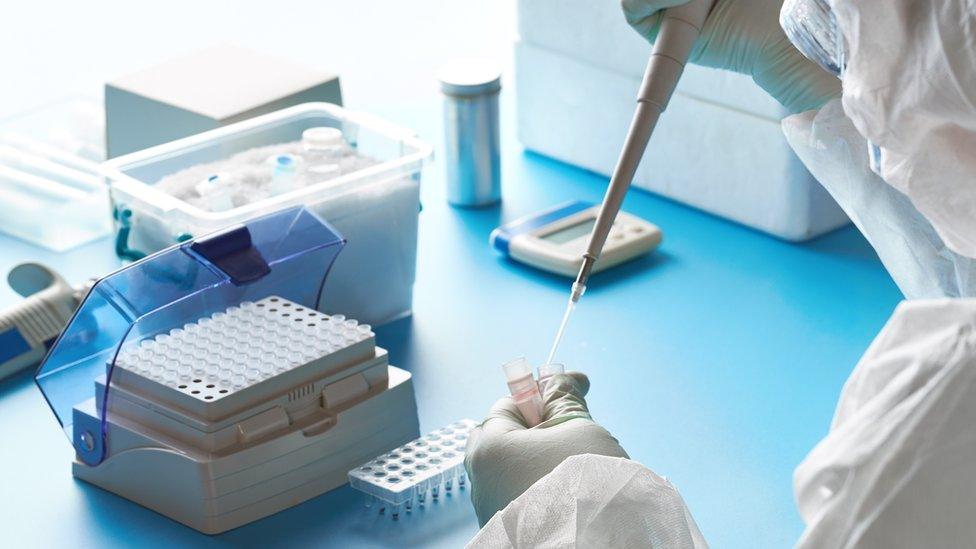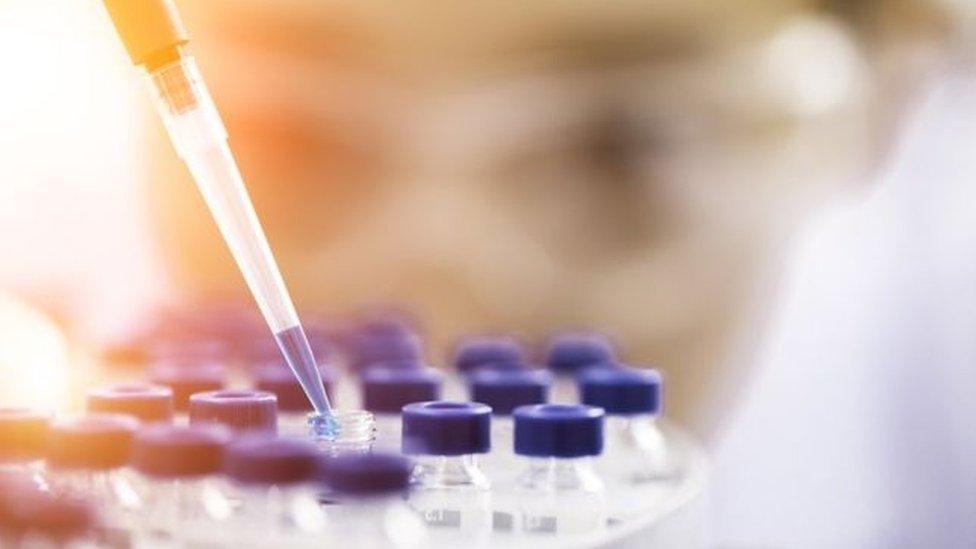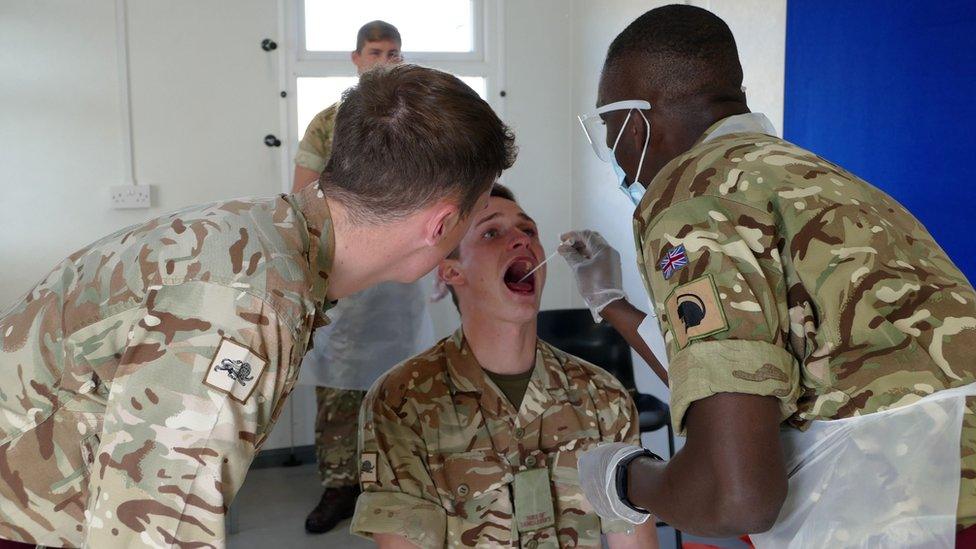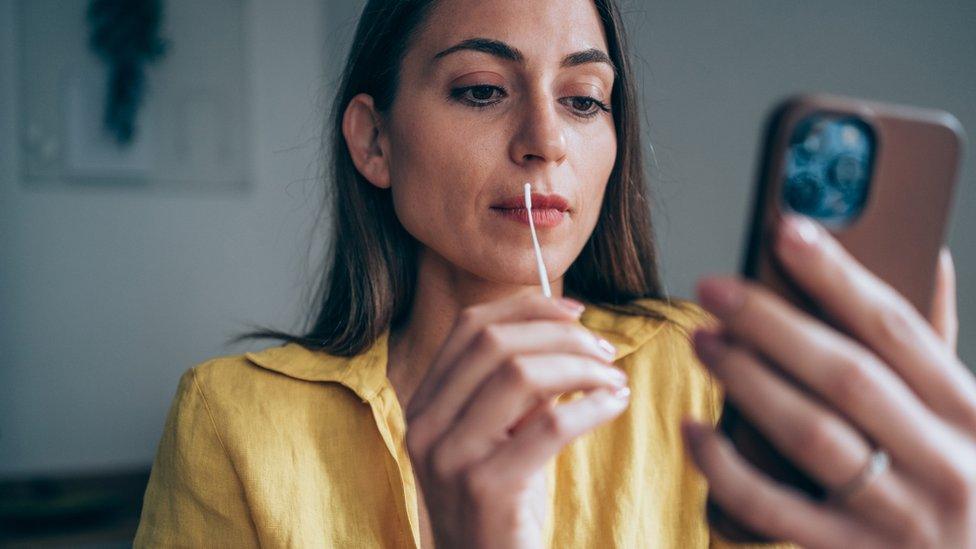Coronavirus: Antibody test 'ready for production by June'
- Published

A Crumlin business is part of a consortium working with Oxford University to produce a test
A reliable coronavirus antibody test could be ready for mass production by June, according to a firm in the south Wales valleys involved in the project.
BBI Solutions in Crumlin is part of a consortium working with Oxford University to create the test.
Prime Minister Boris Johnson has described antibody tests - which check whether someone has had Covid-19 - as a potential "game changer".
But the World Health Organization (WHO) has questioned their reliability.
It has said there was "no evidence" they show whether an individual "has immunity or is protected from reinfection".
Antibody tests look for immunity signs by examining blood drops.
So far no home test has proved reliable.
The UK Government has said "an unreliable test is worse than no test".
Dr Mario Gualano, BBI Solutions chief executive, told the BBC's Politics Wales the new test's reliability had "to be in the high 90s for both sensitivity and specificity".
"If somebody suspects that they have been infected with coronavirus, they would be able to order a test and very easily test themselves and demonstrate whether they have developed an immune response to the coronavirus," he said.
When infected the body generates different "classes" of antibody.
Dr Gualano explained: "We're looking for a class that would suggest a historic infection and therefore the presumption would be that, on the basis that an individual has that type of antibody, they would be immune."
The WHO has cast doubt on quick antibody tests because of an absence of information about coronavirus immunity.
Dr Maria van Kerkhove, a WHO specialist in emerging infectious diseases, said there was no evidence a test could "show that an individual has immunity or is protected from reinfection".
She said it was "a good thing" tests are being developed, but added: "We need to ensure that they are validated, so that we know that what they say they attempt to measure, they are actually measuring."
Dr Eddie Wang, a reader in Cardiff University's viral immunology group, said tests would be "incredibly useful" for understanding if people had been previously infected.
But he said tests do not show the "the type of immune response" a person has.
"We need to know a lot more before we can make definitive conclusions about how important those antibody responses are," he said.
Dr Gualano accepted there was a possibility Covid-19 could mutate, which "would render your immune response redundant".

The World Health Organisation has cast doubt on quick antibody tests because of a lack of evidence about coronavirus immunity
The consortium BBI is preparing to make a million tests a week.
But the UK government says orders "will be cancelled" if they are unreliable.
Dr Gualano said the tests would be "very easy to use."
He said BBI is also developing an app to record test results.
A test is already in use at the UK government's Porton Down labs in Wiltshire, but is being reserved to estimate population immunity - not to give information on individuals.
Scotland's health secretary Jeane Freeman announced on Friday work would begin next week testing blood to give an indication of how many people have had coronavirus.
Public Health Wales said it would bring in plans for antibody testing beginning next week "to monitor the progress of the disease across Wales as part of our recovery plan".
BBC Politics Wales is on BBC One Wales at 10:15 BST on Sunday, 3 May, and later on the BBC iPlayer.
- Published2 May 2020
- Published1 May 2020

- Published3 May 2022
